14 Steps to Stop Feeling Anxious About Your Finances
Follow these tips to earn more money and worry less.
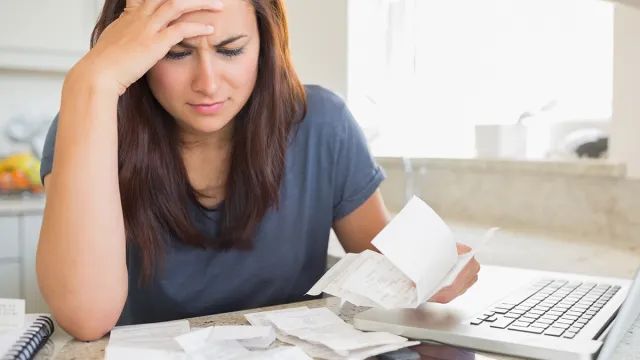
Stop worrying about money? Ha! Easier said than done. Coming off years of pandemic-related turbulence and financial uncertainty, it's rare to find someone who isn't anxious about monetary matters, whether it's monthly bills, credit card debt, investments, retirement, or all of the above. And it's nothing new: Even in 2018, when the economy was booming, a survey by Northwestern Mutual found that more than half of Americans were worried about their finances. But no matter where you are in the financial pantheon, there are steps you can take to ease your queasy heart and stomach—and potentially earn more cash. These are 14 recommendations from experts.

"When you change your money mindset, your thoughts of scarcity and lack are replaced with deep peace and trust," self-made millionaire Denise Duffield-Thomas recently told the Telegraph. "You feel safe and supported and abundant. You'll feel a deep shift in your body: an expansive feeling of more ease and core stability in your nervous system." Sounds great! Where do we start?

Stop identifying as broke, Duffield-Thomas says. Don't think about COVID or interest rates, which you have no control over. Work on what you can do right now. "You can't control what's going on externally, but you can control what you focus on—what decisions do you have control over that feel more certain?" she said. "Where do you have the most agency about your money situation? Start there."
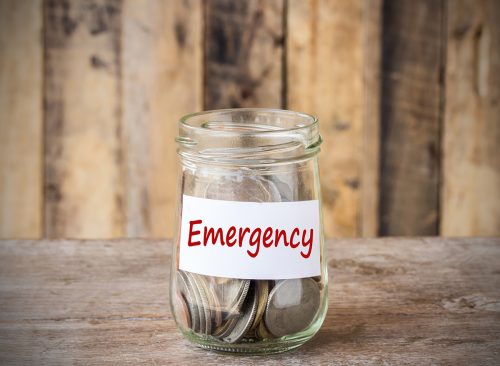
Creating a savings account that contains at least three to six months of living expenses is advised by most experts. Don't have one? Start with something—anything—and make regular contributions from all the income you bring in, even if it's just a bit. Setting up a direct deposit or "round-up" savings from apps like Acorns can be very helpful.

If you have a spouse and/or children, having an adequate life insurance policy—along with homeowner's and renter's insurance, no matter your family situation—can go a long way toward reducing anxiety.

Money blocks are our beliefs about money, which stop us from earning what we want, the entrepreneur explains. "The most popular one is that you have to work hard to make money. We know this makes no sense because people who work very hard don't necessarily make the most," she says. You don't have to punch a clock or sit at a desk to earn money. How might you be able to start a side gig online?

This time-honored recommendation of therapists—otherwise known as the law of attraction—really works, Duffield-Thomas asserts. "If you have a scarcity mindset around money, you may find it difficult to make money or hold on to it once you've received it," she says. "Choose to make the leap from scarcity to an abundance mindset." She recommends making a list of five money-related things you're grateful for each day. "It could be something as small as 'I'm grateful for my coffee this morning' or 'I had enough money to cover my rent this month,'" she says.

If you believe you're terrible with money, explore whether that message came from when you were younger—and change what you tell yourself into something new and empowering.

"What would feeling financially stable look like/smell like/sound like/feel like?" Duffield-Thomas asks. "Try collecting pictures on your phone and computer screen that represent the lifestyle you want, or buying an Eiffel Tower keyring if your goal is to go to Paris, for example. Now start plotting income-producing activities that you can implement today and create a step-by-step plan of how you can put them in place." The goal is to drown out negative messages about money with positive ones.
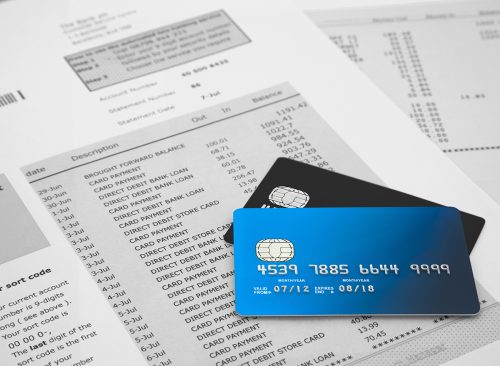
Stop throwing those credit card statements in the trash unopened. Look at how much you owe in total. "Face it head-on," says Duffield-Thomas. "People are often too scared to even find out how much debt they have. There is a lot of shame and embarrassment. You might be using your debt as an excuse to not take action in your life."
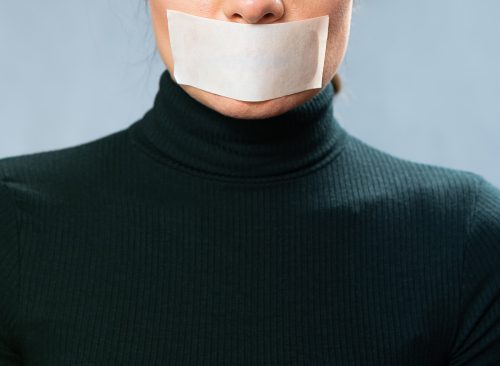
Do you find yourself disparaging people who have money? "Money isn't good or bad. Money just is," says Duffield-Thomas. "Notice your language about money—are you saying things like 'money-grubbing' or 'filthy rich' about other people? Instead of b——g about how much money other people make, start getting curious. See if there is any correlation between the way you talk about money and your ability to earn and look after it."

Is your discontent or anxiety really about your bank balance? "Basing your self-image on your bank account can lead to unhappiness," said Arthur C. Brooks in a 2021 Atlantic article. He cited a March 2020 study in which 345 adults were asked to respond to statements like, "My self-esteem is influenced by how much money I make" and "I feel bad about myself when I feel like I don't make enough money." Those who agreed were more likely to be lonely and socially disconnected. They also spent more time working alone.

"When you think, 'What if I can't save enough for retirement?' for example, try to focus on a more positive thought," Christine Luken, author of Money is Emotional, recently told First. "You might say to yourself 'I work hard, I'm saving money where I can, and it will be okay.'"

To boost your savings, you don't have to go all-or-nothing. Instead of saying you're not going to shop online at all this month, commit to not shopping at night when you usually spend too much. "We don't have to overhaul our entire financial life—we're more successful when we pinpoint small, realistic changes," Amanda Clayman, LCSW, a psychotherapist and coach specializing in financial wellness, told First.
RELATED: Surprising Signs You've Already Had COVID
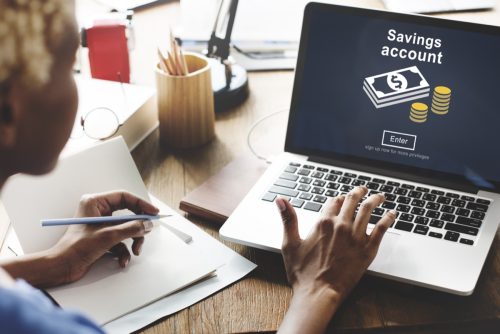
If you only look at your balances during high-stakes situations or when you're anxious, it reinforces that money is "dangerous and we should be afraid of it because every experience is negative," Clayman told CNBC. Instead, create a scheduled "money time" where you review where your money's flowing, look at what expenses are coming, and make proactive adjustments to reduce crunch-time anxiety.














